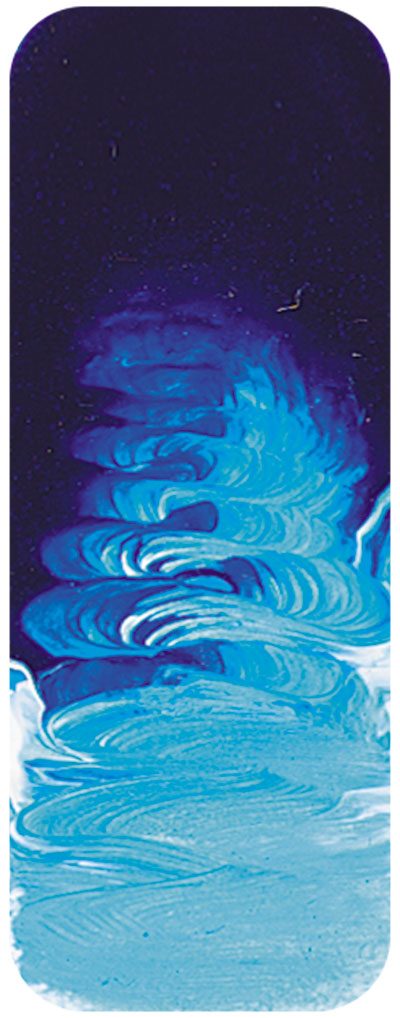Phthalo Blue Matisse Fluid 135ml
Description
"Phthalo Blue is the short name for Phthalocyanine. It is an unusual case of the scientific name for a pigment gaining common usage and accepted by the public. The ??Ph?? at the beginning can look confusing to those new to the colour, but it is silent so that the name is pronounced as ??thalo??. When first launched in 1936 it had another name ??? it was called Monastral Blue and a few paint company???s still call it that but most ended up reverting to the chemical name.
It is a colour that was discovered quite by accident. These accidental discoveries are relatively common with pigments. Most famously the original discovery of the first synthetic coal tar dye in the mid 19th century was made by someone who was trying to synthesize quinine to treat malaria. But it is unusual for a pigment to be discovered accidentally by 3 separate groups in different countries. In the case of Phthalo Blue chemists in both Switzerland and Scotland accidentally made the substance in 1907 and in both cases noted how it seemed to be a strong staining and beautiful colour in their records but otherwise did nothing to follow up. In 1935 it was again created accidentally while looking for something else, this time at ICI in the UK, but this time there was follow up work and experimentation showed this to be the most lightfast organic dye found up to that time. Within a year it was being marketed as a dye for textiles and as a pigment for industry and artists. Considering what a major industry the phthalocyanine blue and green industries were to become both the original Swiss and Scottish groups can be said to have missed out on the opportunity of a lifetime simply by not being curious about the dark blue impurity in their test tubes.
It is a deep greenish Blue and extraordinary strength. No Phthalocyanine on the market is full strength because just a drop would overwhelm any colour it was added to. To make the colour workable it is reduced with an appropriate level of extenders at the point of manufacture. This is in no way an adulteration for without the extenders the colour would be unusable. Even in the greatly reduced form we have it in tubes it is still one of the most powerful colours on the palette and needs to be used with restraint since it is very easy to put too much into a mixture.
Phthalocyanine Blue is the necessary standard dark blue used by artists. Poor production standards in the early to mid 20th century meant that the otherwise perfect Prussian Blue had gained a reputation for uneven quality. In acrylics Phthalo Blue was the only choice for many years, because the early versions of Prussian Blue became unstable in acrylic emulsions, although advances in the technology of Prussian Blue manufacture has made that pigment both reliable as to quality, stable, and therefore viable in acrylic and the two colours are very complementary. Prussian Blue has more opacity and is not quite so greenish so each pigment has advantages over the other in various circumstances. Phthalo Blue???s great transparency and cleanness of colour gives the pigment a jewel-like quality. It is the perfect blue for depicting blue and green colour glass, and for water and other transparent or translucent substances.
It is rarely used on its own simply reduced with white since it has a colour that is not commonly found in the natural world but this unique colour is what makes it so useful to the artist because it can make colours that no other colour can match. It is particularly valuable for making greens of all kinds. Hookers Green is a colour that artists find particularly useful. It is possible to buy it in a tube, but a the sort of dark Hookers Green colours made with mixtures with Phthalo Blue probably have more character. There are 2 ways of making it. Mixing Phthalo Blue with Aureolin makes a slightly brighter version that if mixing the colour with Phthalo Blue and Transparent Yellow Oxide. This mixture is darker and


